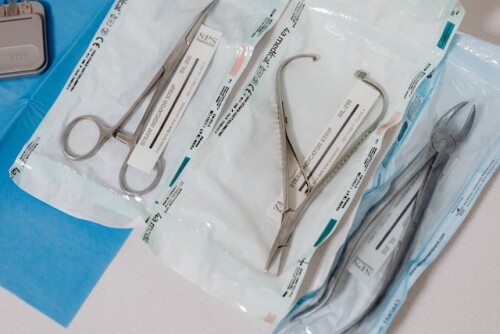
Medical surgical nursing is a critical aspect of healthcare that encompasses a wide range of skills, knowledge, and techniques. From preoperative to postoperative care, this specialty requires a deep understanding of anatomy, physiology, pharmacology, and patient management. In this article, we will explore the world of medical surgical nursing and provide practical tips, techniques, and best practices for nurses to excel in this field.
As a nursing student, I have come to learn that medical-surgical nursing is a crucial aspect of healthcare that requires essential skills and techniques. The following are some of the skills and techniques that are crucial in providing quality medical-surgical care.
Patient Assessment and Monitoring
Patient assessment and monitoring are important in determining the patient’s health status, progress, and response to treatment. In medical-surgical nursing, nurses must have a good understanding of physical assessment, including vital signs, and use diagnostic tools to interpret patient data accurately.
Medication Administration
Medication administration is a key responsibility of medical-surgical nurses. Nurses must have a good understanding of the medication being administered, including its purpose, side effects, and contraindications. They must also ensure that the patient receives the correct medication, dosage, and route of administration.
Wound Care and Dressing Changes
Wound care is an essential aspect of medical-surgical nursing. Nurses must be skilled in wound assessment, wound cleansing, and dressing changes. They must also have a good understanding of the different types of dressings and how to select the appropriate dressing for each wound type.
IV Therapy and Blood Transfusions
In medical-surgical nursing, IV therapy and blood transfusions are common procedures. Nurses must be knowledgeable about the different types of IV solutions, the principles of IV therapy, and the proper administration of blood products. They must also be able to monitor the patient for any adverse reactions.
Pain Management
Pain management is crucial in medical-surgical nursing. Nurses must be skilled in pain assessment, pharmacology, and non-pharmacological pain management techniques. They must also be able to assess the effectiveness of pain management interventions and modify the treatment plan as necessary.
Postoperative Care and Complication Management
Postoperative care and complication management are important aspects of medical-surgical nursing. Nurses must be skilled in postoperative assessment, pain management, wound care, and monitoring for potential complications. They must also be able to recognize and respond appropriately to any postoperative complications that may arise.

Medical-surgical nursing is an area of nursing that requires a comprehensive understanding of patient care and management. This field requires a deep knowledge of anatomy, physiology, pharmacology, and patient management. In this article, we will discuss some of the best practices in medical surgical nursing that will help nurses provide high-quality care to patients.
-
Infection Prevention and Control:
Infection prevention and control are crucial aspects of medical surgical nursing. Nurses play a vital role in preventing and controlling infections in patients. They should follow standard infection control precautions, including hand hygiene, personal protective equipment (PPE), and proper handling and disposal of contaminated materials. Nurses should be knowledgeable about the various types of infections, their transmission, and prevention methods. They should be able to identify the signs and symptoms of infections and initiate appropriate interventions.
-
Interdisciplinary Teamwork:
Medical surgical nursing involves a multidisciplinary team that includes physicians, nurses, therapists, social workers, and other healthcare professionals. Effective interdisciplinary teamwork is critical for providing quality patient care. Nurses should communicate effectively with other team members, share information, and collaborate on patient care plans. They should also advocate for the patients and their families and ensure their needs are met.
-
Ethical Considerations and Patient Rights:
Ethical considerations and patient rights are critical aspects of medical surgical nursing. Nurses should be aware of the ethical principles that guide their practice, including respect for patient autonomy, beneficence, non-maleficence, and justice. They should also be knowledgeable about the legal and regulatory frameworks that protect patients’ rights, including informed consent, privacy, and confidentiality. Nurses should advocate for the patients’ rights and ensure that they receive quality care.
-
Communication and Patient Education:
Effective communication is essential in medical surgical nursing. Nurses should be able to communicate effectively with patients, their families, and other healthcare professionals. They should be able to provide clear and concise information about patients’ conditions, treatments, and medications. They should also be able to educate patients and their families about their health conditions, self-care, and lifestyle modifications.
-
Evidence-Based Practice and Continuous Learning:
Medical surgical nursing requires a commitment to evidence-based practice and continuous learning. Nurses should be knowledgeable about the latest research and best practices in patient care. They should be able to integrate evidence-based practice into their patient care plans and continuously evaluate and improve their practice. Nurses should also engage in ongoing professional development, including attending conferences, workshops, and continuing education programs.
In conclusion, medical surgical nursing requires a wide range of skills, knowledge, and techniques. By following best practices, including infection prevention and control, interdisciplinary teamwork, ethical considerations and patient rights, communication and patient education, and evidence-based practice and continuous learning, nurses can provide high-quality care to patients. Nurses should be committed to ongoing learning and professional development to ensure they provide the best possible care to their patients. Practice your skills with these free nclex practice questions
